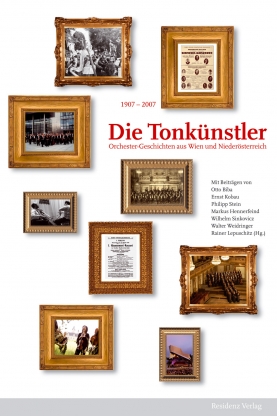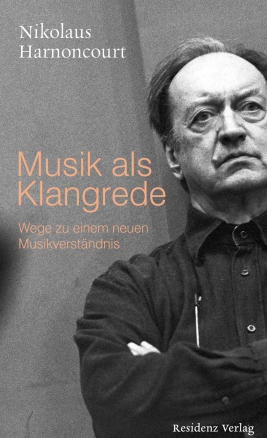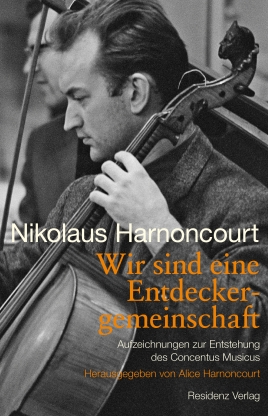
Rainer Lepuschitz (Edited by) - The Tonkünstler Orchestra. 100 years of colourful history
Orchestra Stories from Vienna and Lower Austria
Tonkünstler, “artist of the tone” – this is not only what many musicians called themselves up to the second half of last century. The name also has a rich history in the Austrian music scene, a history that is now alive in the Tonkünstler Orchestra of Lower Austria. Back in the times of Mozart and Haydn there was a “Tonkünstler-Societät” in Vienna which mainly organised charity performances of oratories. In 1907, the Tonkünstler Orchestra was formed in Vienna, playing the classic repertoire of that time, but also contemporary music, e.g. the world premiere of Schönberg’s Gurre-Lieder. But there were many ups and downs in the history of this orchestra. After World War I it merged with the Wiener Concertverein for financial reasons, and only after World War II, the tradition of an independent Tonkünstler Orchestra could be continued in the form of the orchestra of the Austrian province of Lower Austria that took over the name and traditions of the Tonkünstler Orchestra. A century full of eventful and interesting stories, recounted by Ernst Kobau, Philipp Stein, Markus Hennerfeind, Wilhelm Sinkovicz, Walter Weidringer and Rainer Lepuschitz, the editor. In the prologue, Otto Biba outlines the historic roots of the Tonkünstler.
Über die Kunst der Töne und die Entwicklung einer langjährigen Tradition Die Tonkünstler – das ist nicht nur die Berufsbezeichnung, die sich bis in die zweite Hälfte des vergangenen Jahrhunderts auf den Visitenkarten vieler Musiker fand; es ist auch ein geschichtsträchtiger Name, der im Tonkünstler-Orchester Niederösterreich lebendig ist. Bereits zu Mozarts und Haydns Zeit gab es in Wien die Tonkünstler-Societät, die vor allem Benefizaufführungen von Oratorien organisierte. 1907 konstituierte sich in Wien das Tonkünstler- Orchester, das neben dem klassischen Repertoire viel zeitgenössische Musik spielte, so die Uraufführung von Schönbergs „Gurreliedern“. Doch die Geschichte des Orchesters war sehr wechselhaft. Nach dem Ersten Weltkrieg kam es aus materiellen Gründen zur Fusion mit dem Wiener Concertverein. Erst nach dem Zweiten Weltkrieg lebte die eigenständige Tonkünstler-Tradition wieder auf, als sich das niederösterreichische Landesorchester diesen Namen gab und sich damit dieser Tradition verpflichtete. Ein Jahrhundert bewegter und spannender Orchestergeschichten werden von Ernst Kobau, Philipp Stein, Markus Hennerfeind, Wilhelm Sinkovicz, Walter Weidringer und Herausgeber Rainer Lepuschitz erzählt. Otto Biba skizziert als Prolog die historischen Tonkünstler-Vereinigungen.
Book details
192 pagesformat:165 x 240
ISBN: 9783701730605
Release date: 03.10.2007







